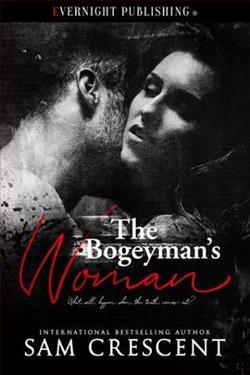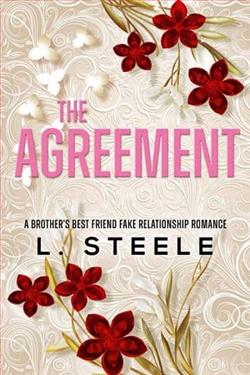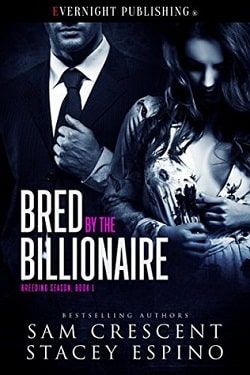Page 27 of Going Home in the Dark
The big mural offered Italian atmosphere from the Tower of Pisa to what might have been a pissoir. A year earlier, there had been a jukebox, but Mr. Adorno fell out of love with contemporary music. Now some guys with names like Dean Martin and Julius La Rosa and Al Martino were piped in free. The amigos tried not to listen to them because, if they came to like those singers, they might sink deeper into nerddom, so deep they would never get out. On the plus side, when other teenagers wandered into the place, the music was to them what a crucifix was to vampires, and they fled before someone might try to drive stakes through their hearts.
Bobby the Sham and Ernie were sitting on the same banquette in their booth, and Spencer was sitting alone in the facing banquette. On the table between them were three Cokes on coordinated coasters and a large cheese-and-pepperoni pizza that they were sharing.
This was a sanctuary for the amigos because Mr. Adorno refused to endure the worst of adolescent behavior; therefore, if you were kids who qualified for one of the in-crowds and wanted a hangout joint, you went to Pizza Pete’s or Roscoe’s Burger Hut & Drive-Thru, which were on the far side of town from Adorno’s.In this place, no one bullied or taunted or mocked or sneered at anyone because the trade was mostly adults, and those kids who came here were outcasts, geeks, and losers who just wanted to live and let live.
The amigos, all fourteen years old and beginning their freshman year after escaping the purgatory of middle school, had met in July. Recognizing that they were from impossible families and sensitive to the suffering of others in a time when fomenting the suffering of others was a popular sport, they bonded quickly. All three wanted to be United States Marines. If the Marines didn’t want them, then they hoped to be astronauts. If they failed to become astronauts, they wanted to be famous stage magicians or maybe card counters who could bilk casinos out of millions of dollars. If none of those career paths proved open to them, there was always a need for car salesmen, and cars were cool. They agreed they didn’t want to go to college or be cogs in some big corporation; if it came to one of those fates, they would have to win at least $150,000,000 in the lottery, after taxes, and share their winnings. Then they would buy Adorno’s, not with any intention of making a profit, but just so they would always have the ideal place to hang out.
That evening in September, they were arguing over who would win in a matchup between the Terminator and the monster from the movieAliens, when the pizzeria door opened and chilly fog seethed inside, bringing with it Rebecca Crane. They didn’t know her name then, and in fact they initially paid little attention to her.
They were boys who liked girls, even though girls scared them a little. Actually, girls scared them a lot. They hoped to grow out of that and become confident around the opposite sex. However,they had admitted to one another that they expected to live without a mate, die alone, and be found by strangers weeks after death in a state of horrific decomposition.
Rebecca wasn’t dressed to attract boys. Because of the examples set by her man-crazy mother and her grandparents in their creepy kissy-face war to the death, she’d decided to go through life as asexual as a protozoa, without even the hope of replicating herself by ameboid fission. On this occasion, she wore combat boots, baggy camouflage pants, a black sweatshirt, and a floppy waterproofed canvas hat with a wide brim like the headgear of explorers making their way through jungles in perpetual rain. She was as white-faced as something that lived under a rock, because she had applied stage makeup of the kind required by actors in the role of ghosts in such plays as those based onA Christmas Carolor a work by Poe.
When she came directly to the booth occupied by the three amigos and sat beside Spencer, the boys flinched, and Ernie almost knocked over his Coke, and Spencer raised one hand defensively, as if warding off an attack.
Bobby had seen such a person around school, in this getup as well as in assemblages of roomy antique clothing that made her look like the shambling apparition of some ax murderess who had died in the eighteenth century. There were no dress codes in school anymore; even if there had been, no teachers or counselors remained with the courage to confront a student so strangely costumed. Someone might have expressed concern about her intentions if she had shown up for class with a flaming torch in each hand, but even then the faculty and administration would most likely have decided that the wisest course was to give herwhatever space she needed to reveal whatever statement she felt compelled to deliver.
Now, sitting in the booth beside Spencer, she made eye contact with each of the boys. They regarded her in stunned silence, as if Death had sat down among them.
She said, “I’m Rebecca Crane. I’ve been watching you guys for a few weeks.”
Those weren’t words that relieved their tension, especially as they had not been aware of being watched.
In a voice as solemn as if they were seated in a funeral home during a viewing of a deceased family member, she said, “You look like you enjoy being together, even like you’re having fun, not fun like other kids have fun, but some kind of fun anyway.”
Bobby thought—and no doubt so did Spencer and Ernie—that her implication was that “having fun” of their kind was something vermin did, a species of vermin that needed to be exterminated.
As if to stave off the violence that might be impending, Ernie said, “Well, you know, appearances can be deceiving. We don’t have a lot of fun. We don’t even try. It would be fruitless to do so.”
Her eyes narrowed. “What are you trying to tell me? Are you telling me this is a closed club, I should go away?”
“We’re not a club,” Spencer assured her. “Nothing as fun as a club. We don’t have a secret handshake or a club song or anything as fun as that.”
Lips tightly compressed, she regarded Spencer in silence for half a minute, for another half minute, for yet another half minute, until a fine sweat had broken out on his forehead. Then she said, “I want in.”
“In what?” Ernie asked.
“In,” she said fiercely.
“She wants in,” Bobby clarified.
“She’s already in,” Spencer said. To Rebecca, he said, “You were outside, and you came inside.”
“Don’t pretend to be idiots so that maybe I’ll just go away. You’re not idiots, and I’m not going anywhere but in.”
“She’s not going anywhere but in,” Bobby said, in case his two amigos still didn’t get it. In fact, he didn’t get it himself. The amigos were such outcasts that it never crossed his mind that she wanted to be one of their group. He was just trying to forestall an unpleasant conflict until they could pry from her what she meant by the word “in.”
Into this hair-trigger situation stepped Gia Adorno, who was the daughter of Luca and Apollonia Adorno. She was maybe five feet four with midnight-black hair and dark-brown eyes, so beautiful that the amigos always stuttered through their orders when she was their waitress. As willowy as she appeared, Gia could nevertheless lever an obnoxious drunk out of his chair and manhandle him through the front door into the street regardless of his size. She scanned Rebecca and said, “Great look.”
“Thanks.”
“I especially like the flamingo feather in the rain hat.”
“No flamingos around here, so I plucked a chicken feather and dyed it pink.”
“What can I get for you?”
“What’re they drinking?”















